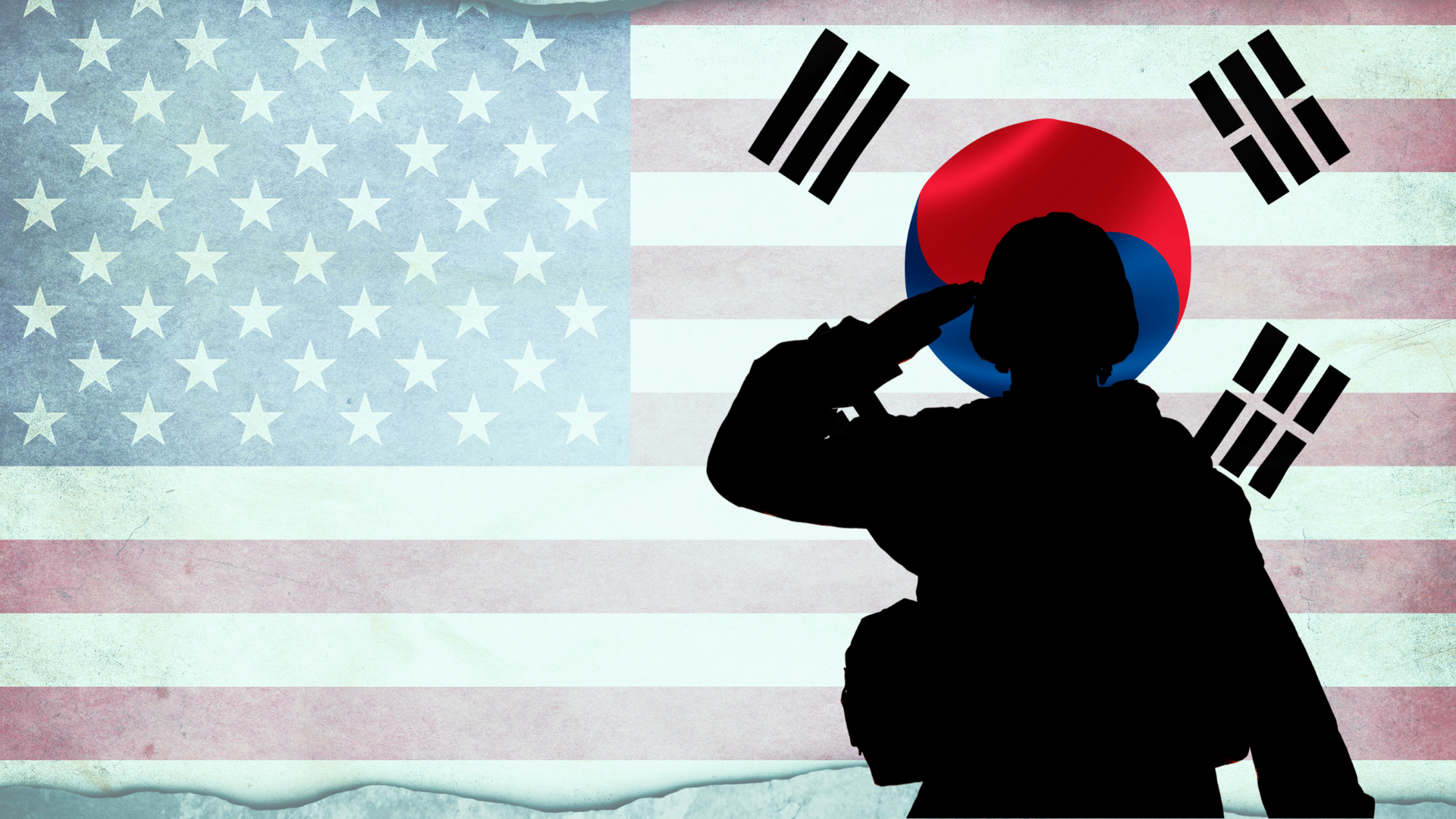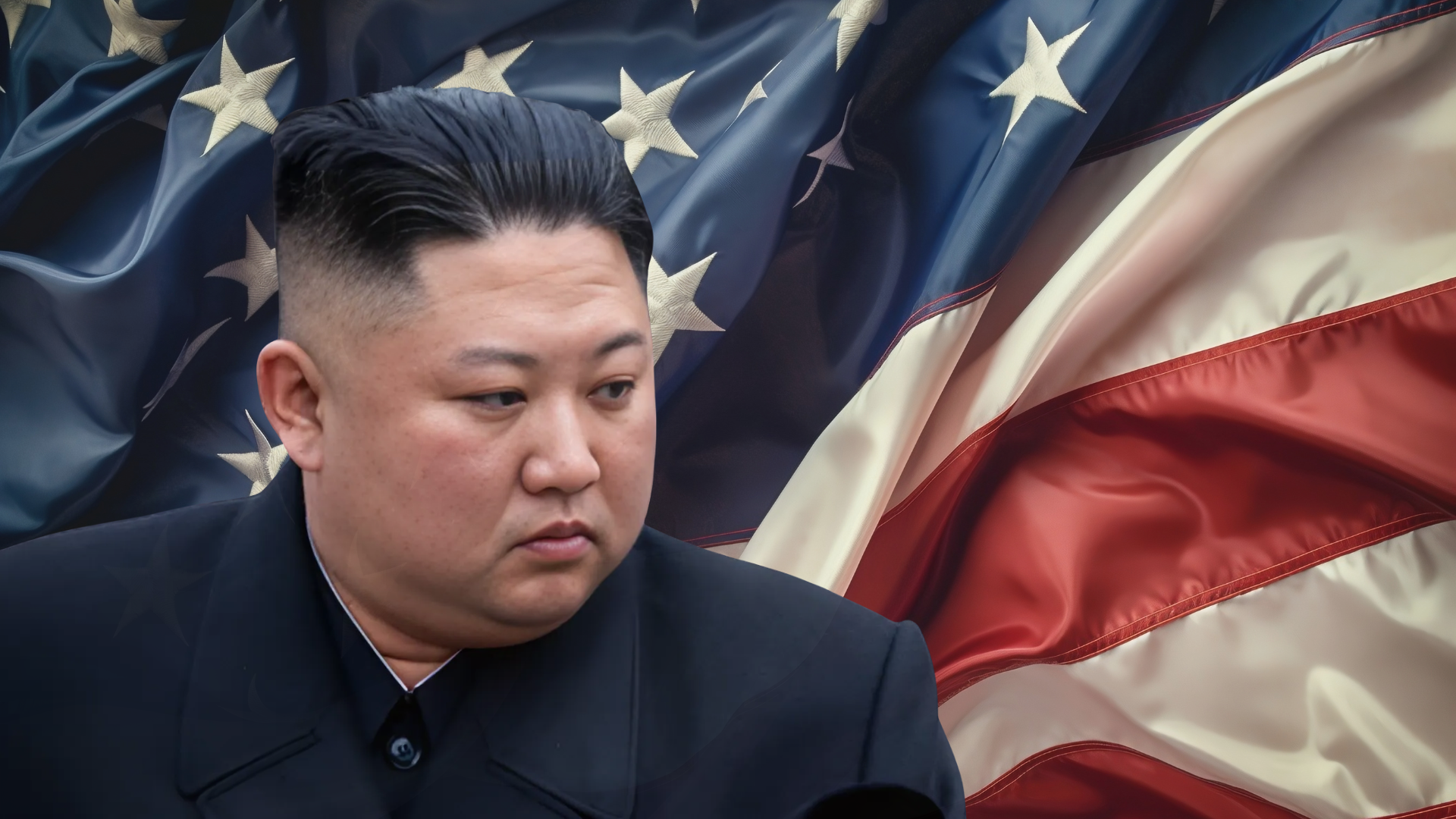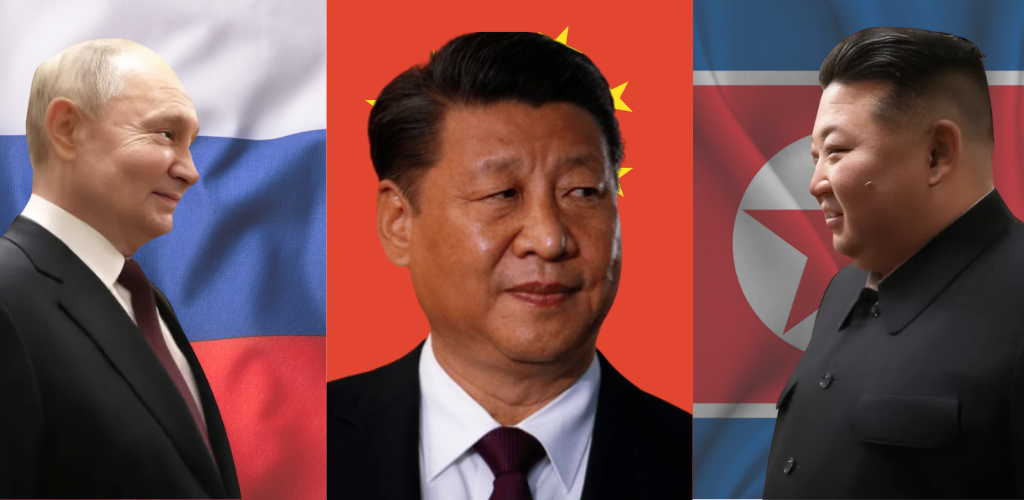I. Growing Skepticism toward DPRK Denuclearization
The complete denuclearization of North Korea (DPRK) is the official policy goal of South Korea (ROK). While the U.S. shares this objective, the North Korean nuclear problem has been deprioritized due to the prolonged conflicts in Ukraine and Gaza, as well as the ongoing U.S.-China strategic competition, demonstrating a weak willingness to make a breakthrough in its North Korea policy. Although China has consistently supported the ultimate goal of North Korea’s denuclearization, it has not taken a leading role in the international efforts to achieve this objective in recent times. Conversely, Russia is undermining United Nations’ measures related to denuclearization as it urgently needs arms support from North Korea for its war with Ukraine. There is a growing voice within ROK that complete denuclearization of North Korea is no longer possible and that the focus should instead be on deterring a nuclear attack from what has now become a de facto nuclear weapons state.
Meanwhile, if North Korean nuclear weapons and missiles gain the capacity to attack the U.S. mainland and even attain second nuclear strike capability, mutually assured deterrence (MAD) logic will be established between DPRK and the U.S., drastically changing the North Korean nuclear problem. This will not only shift North Korea’s military security strategy but also impact the ROK-U.S. extended deterrence, increasing the chance for potential decoupling of security interests between ROK and the U.S. Therefore, pursuing DPRK denuclearization is most optimal before these significant changes take place.
The assessment that North Korean denuclearization will be difficult is based on various analyses. First of all, North Korea seemingly will not give up its nuclear weapons, as they are not only key assets for its foreign military security strategy but also crucial for maintaining regime legitimacy on the domestic front. Despite the dire economic situation, the Kim Jong Un regime has not halted the advancement of its nuclear and missile arsenals. The DPRK has showcased its nuclear development as a symbol of the regime’s success and the progress of its science and technology, all while emphasizing external threats.
In September 2023, the DPRK Supreme People’s Assembly amended its constitution to enshrine the development and possession of nuclear weapons as the basic law of the state. North Korea identifies nuclear weapons possession as a fundamental right and has made clear in its constitution the intent to continue its nuclear program despite foreign sanctions and pressure. Additionally, by asserting that it can deploy nuclear weapons not only for defensive but also for offensive purposes, North Korea has underscored that denuclearization will be extremely difficult.
Secondly, some assess that the terms of agreement among major powers regarding the North Korean nuclear problem have been compromised due to the deterioration of U.S.-Russia relations before and after the war in Ukraine and the ongoing U.S.-China strategic competition. Consequently, it has become increasingly difficult for the international community to further strengthen economic sanctions against North Korea for its nuclear advancements. North Korea defines the current international politics as a “New Cold War”, pursuing a new Cold War strategy that creates an advantageous situation for advancing its nuclear power. The DPRK believes it can secure not only diplomatic support from Russia but also food and energy supplies through military and economic trade. Additionally, by vetoing the extension of the UN Panel of Experts on North Korea, Russia has facilitated North Korea's evasion of international sanctions.
Thirdly, the de-prioritization of North Korea in the U.S. policy agenda due to a shift in global strategy is also crucial. Because of the wars in Ukraine and Gaza, the U.S. military security strategy is primarily focused on more urgent policy goals. Consequently, it has very limited resources and interest dedicated to the complete denuclearization of North Korea.
Lastly, ROK’s North Korea policy is focused on military deterrence against the rising nuclear and missile threat from North Korea. The DPRK threat has escalated to the point where it is insufficient to rely solely on strengthening U.S. extended deterrence to counter a sudden nuclear attack from North Korea. In this context, there is limited policy space for South Korea to make substantial efforts toward North Korea’s denuclearization.
II. North Korea’s Nuclear Dilemma: The Economic and Strategic Costs
Nevertheless, there are compelling reasons why North Korea cannot continue to turn its back on denuclearization. The first reason is its strained economy. It is well-known that North Korea’s economic growth rate hit a record low during the COVID-19 pandemic. International economic sanctions, which became effective in the late 2010s, combined with the pandemic, have severely deteriorated the DPRK economy. The problematic aspect is that the economy has yet to recover even after the pandemic, despite recording a 3% growth rate in 2023. Trade with China has not returned to pre-2019 levels, failing to meet North Korea’s needs adequately. Moreover, the increase in foreign currency exchange rates is worsening the economic situation, indicating that the regime’s policies to address this issue have been ineffective. If North Korea’s post-pandemic economy fails to recover during this period of “absolute shortage,” it is bound to face critical crises in the future (Lee 2024).
Second, North Korea’s new Cold War policy is unlikely to succeed. The North Korean economy, which predominantly depends on China, is unlikely to recover by establishing a strategic relationship with Russia. While Russia can provide crude oil and food supplies, it lacks the economic conditions to fundamentally restore North Korea’s economy, and its market is small. Russia might assist in alleviating international sanctions against North Korea, but it has limited capacity to take a decisive role in revitalizing the DPRK economy. Another variable that could change the situation is whether Russia’s assistance to the DPRK will continue even after the end of its war with Ukraine.
Meanwhile, China finds itself in a tricky diplomatic position due to the strengthened economic relationship between Pyongyang and Moscow. China cannot fully support Russia’s invasion of Ukraine and finds it difficult to endorse DPRK’s policy of supplying war materials to Russia in exchange for compensatory aid. Additionally, it is challenging for China to fully participate in a trilateral partnership with Russia and the DPRK due to differences of interests. In short, North Korea’s policy vision of securing economic development amid the new Cold War structure and ultimately being accepted as a nuclear state is not promising.
Third, while North Korea may believe that nuclear weapons provide a security guarantee, the ongoing rapid technological revolution will ultimately weaken the utility of these weapons. During the U.S.-China summit in San Francisco in November 2023, the need for negotiation on Artificial Intelligence (AI)-based nuclear competition was brought to the forefront. This indicates that as nuclear weapons develop based on AI, the existing nuclear weapons structure will become obsolete. Although it is difficult to predict the direction of emerging technologies and AI in detail, there is a high possibility that the ROK-U.S. response capacity against DPRK nuclear weapons, with the help of AI, will increase dramatically. The DPRK finds itself in a technological environment where its deterrent, developed over 30 years, is bound to significantly weaken. While discussions on cooperation over advanced technology, including AI, are ongoing based on the recent Comprehensive Strategic Partnership Treaty between Russia and North Korea, it is unlikely that two countries will be able to catch up to the AI revolution currently led by the U.S.
III. ROK’s Strategies and Roadmap
How should ROK set its policy goals and roadmap in this situation? First, it must realign its discourse on complete denuclearization. While the ROK explicitly states this as its ultimate policy objective, there should be a serious contemplation on whether it should genuinely pursue a Korean Peninsula free of nuclear weapons.
The prevailing belief has been that nuclear weapons are political tools that cannot be utilized. However, since Russia's official declaration regarding the potential use of tactical nuclear weapons in Ukraine, the United States and the international community have grappled extensively with formulating appropriate response strategies to this alarming escalation. Similarly, North Korea has developed nuclear assets that could be deployed on the battlefield, with increasing threats of their actual use. Even a small tactical nuclear weapon, if deployed, would cause a drastic change in human history.
While the Nuclear Non-proliferation Treaty (NPT) sustains the global nuclear order, it is extremely unlikely that vertical proliferation prevention will be realized due to the nuclear competition between the U.S. and China. If the threat of horizontal nuclear proliferation, including that of North Korea, becomes more serious, this could further accelerate nuclear proliferation. If a security crisis were to emerge in Northeast Asia, following the situation in Ukraine, and escalate into a military conflict, the likelihood of a nuclear war could increase rapidly. In this scenario, North Korean nuclear weapons could be utilized as assets in a nuclear conflict among great powers.
Considering these potential scenarios, the threat posed by North Korean nuclear weapons is fundamentally shifting, altering the meaning of the ROK’s denuclearization strategy. If South Korea does not pursue complete denuclearization of the DPRK, what could be an alternative strategic objective? While some advocate for South Korea’s nuclear armament, this would make North Korean denuclearization impossible to achieve. With both Koreas possessing nuclear weapons, the arms race will continue. If security strategy is built around nuclear arms, establishing a new military order based on denuclearization on the Korean Peninsula will become even more unlikely.Both Koreas will form nuclear alliances with neighboring countries and prepare for military confrontation on the Korean Peninsula and in the broader region, leading to a dire military situation that undermines efforts to denuclearize North Korea.
Currently, it is inevitable for ROK and U.S. to enhance the extended deterrence because of the persistent threat of a North Korean nuclear attack. However, military deterrence against North Korea is ultimately a means to re-establish inter-Korean relations, as military deterrence itself cannot be the policy goal.
The ROK should convey a clearer strategic message that strengthening its deterrence capability is not intended to provoke an arms race or threaten the survival of the DPRK’s regime. A security dilemma is an inevitable situation in international politics, and provoking the adversary while strengthening deterrence is also inevitable to a certain extent. However, diverse reassurance policies can be implemented to alleviate the potential escalation of the security dilemma, and strategies to pursue more effective adversarial games have been widely discussed in international relations theories (Tang 2010). Non-military measures, such as strategic messaging, and military measures like strengthening real deterrence without threatening the adversary, could be carried out in parallel. Currently, South Korea and Japan are representative countries in terms of the nuclear latency of non-nuclear states that have the capacity to arm themselves. If the ROK pursues nuclear armament to counter the DPRK’s nuclear threat despite the presence of other options, the existing NPT regime could break down very quickly.
The potential weakening of U.S. commitment to extended deterrence has also become a key variable. If South Korea inevitably faces a situation where it must pursue nuclear armament due to a serious weakening of extended deterrence, this could spark a strong desire for nuclear armament among East European and Middle Eastern countries. The nuclear possession of countries with high volatility could ultimately pose an extremely significant risk to all of humanity.
South Korea must play a diplomatic role in solidifying the wavering global nuclear order while demanding stronger nonproliferation commitments from established nuclear states. South Korea’s moral high ground in advocating for DPRK denuclearization can be secured by adequately presenting perspectives on denuclearization, preventing nuclear proliferation, and even prohibiting nuclear weapons.
South Korea can secure continued support from China for North Korea’s denuclearization by emphasizing the importance of strategic stability through nonproliferation and addressing the risks of U.S.-China nuclear competition. Amid the rapidly evolving strategic competition between the U.S. and China, China has significantly weakened its explicit claims and policy statements on North Korea’s denuclearization. Despite the increasing threats from North Korea, China’s relative indifference to South Korea’s security concerns is disappointing. However, if South Korea presents a clear roadmap for North Korea’s denuclearization and firmly establishes a philosophical discourse on nuclear weapons, it could enhance its policy persuasiveness toward China.
Second, if South Korea genuinely seeks the goal of North Korea’s complete denuclearization, it must specify a long-term vision for the Korean Peninsula after this goal can be achieved. A step-by-step policy should be outlined and pursued from now to ultimately achieve denuclearization. While recognizing the importance of military deterrence and economic sanctions against North Korea for long-term denuclearization, it is also crucial to engage in realistic negotiations with North Korea and undertake visible efforts towards establishing a new governance framework on the Korean Peninsula that allows for long-term coexistence between the South and the North.
To this end, a clear narrative that envisions the future of the Korean Peninsula beyond complete denuclearization must be established. Currently, both Koreas come to support the concept of “two Koreas.” North Korea has already declared inter-Korean relations as being between “two adversarial states” at war. While there may be multiple motivations behind this stance, the most significant is the DPRK regime’s use of a political deterrence strategy to compensate for its military weaknesses. North Korea perceives its ongoing nuclear program as still insufficient for achieving full deterrence and aims to create a political environment that justifies its potential nuclear attacks against South Korea. North Korea might feel that its deterrence capability has been strengthened because the threat to use nuclear weapons against a "foreign” nation, South Korea, could be perceived as a more credible threat.
However, it is uncertain whether this “two Koreas” rhetoric is being accepted by ordinary North Koreans. It seems challenging for this rhetoric, introduced rather abruptly, to be easily internalized by North Koreans who, despite their ongoing economic hardships, have long dreamed of a better future through unification. Additionally, many South Koreans believe that North Korea is unlikely to give up its nuclear weapons. Under these circumstances, the prospect of unification with North Korea becomes less hopeful. South Korea also faces significant economic challenges, making it difficult to embrace unification with North Korea. When the costs of unification appear to outweigh the benefits, the desire for peaceful coexistence is gradually strengthening over the aspiration for unification. Numerous public opinion polls indicate that the majority of South Koreans prefer peaceful coexistence between the two Koreas over unification.
The possibility of unification becomes even lower if the majority of people on the Korean Peninsula prefer “two Koreas” over unification. The solution to this problem lies in creating a long-term vision and narrative that links North Korean denuclearization with the prospect of unification. Instead of making denuclearization an end in itself, there must be a broader policy vision that looks further into the future for the entire Korean nation. However, at present, neither Korea is presenting a vision suitable for this era.
Third, a clear short- and medium-term policy roadmap should be outlined. The roadmap should allow for denuclearization negotiations while firmly maintaining the frontlines of military deterrence and economic sanctions. The key factor is to ensure the security of the North Korean regime while clearly highlighting the incentives for denuclearization and the benefits of reforming North Korea. North Korea’s denuclearization and reform could bring significant geopolitical benefits to neighboring countries as well. Above all, it would be a success for the international community in solidifying the nuclear non-proliferation order and could structurally weaken the arms race in Northeast Asia. Instead of pursuing national security based on nuclear weapons, North Korea could serve as a model for other regions, demonstrating that peace can be achieved through negotiations and denuclearization.
Economic support from the international community for North Korea after denuclearization can be carried out effectively. Due to North Korea’s geopolitical importance, many countries will competitively seek to establish friendly relations, allowing North Korea to secure significant policy tools for economic development. For the United States, this would represent a diplomatic success by transforming an exceptionally autocratic state within the broader framework of democracy versus authoritarianism. China, on the other hand, would have a motive to weaken the military cooperation among South Korea, the U.S., and Japan, which is based on the North Korean military threat. Furthermore, by jointly addressing the North Korean issue, the U.S. and China could achieve success in bilateral cooperation cooling down a geopolitical hotspot.
The North Korean regime must come to understand that denuclearization is not a path to collapse or absorption, but a shortcut to becoming a key player in economic development within a state of geopolitical balance. During this process, multilateral measures for systematic guarantees of peace on the Korean Peninsula need to be established. Some argue that North Korea will not give up its nuclear weapons after witnessing the ineffectiveness of the Budapest Memorandum on Security Assurances during the Ukraine crisis. Thus, North Korea’s denuclearization might only be feasible after the Ukraine conflict is resolved. While the outcome of the war remains uncertain, if normalization between Western countries and Russia can be achieved and new security assurances are provided to Ukraine, North Korea might reconsider its stance on denuclearization. In such a scenario, Russia might offer more robust security support to North Korea through a newly established alliance mechanism, making it more compelling than the assurances Ukraine received during its transitional period.
In the short term, measures to prevent nuclear war and reduce the arms race are necessary. This is an immediate concern and a priority that must be addressed urgently. However, in the medium term, the South Korean government should lead diplomatic efforts to strengthen incentives for North Korea’s denuclearization and persuade neighboring countries. This is particularly important in situations where the benefits of maintaining the status quo outweigh those of denuclearization for neighboring countries and the international community, making them reluctant to invest policy resources in the post-denuclearization phase. South Korea’s efforts are not only in its national interest but also serve the broader goals of stabilizing Northeast Asia, establishing a new nuclear order in a rapidly changing world, and promoting cooperation and peace among major powers. Ultimately, South Korea will be able to pressure other countries to prioritize the North Korean nuclear issue in their policies. ■
References
Lee, Suk. 2024. “North Korean Economy in 2024 and Its Way Forward [in Korean].” KDI Review of the North Korean Economy. July. https://www.kdi.re.kr/research/monNorth?pub_no=18399
Tang, Shiping. 2010. A Theory of Security Strategy for Our Time: Defense Realism. New York: Palgrave Macmillan.
■ Chaesung CHUN is the Chair of National Security Research Center at EAI and a Professor at the Department of Political science and International Relations at Seoul National University.
■ Translated and edited by: Jisoo Park, Research Associate
For inquiries: 02 2277 1683 (ext. 208) | jspark@eai.or.kr




